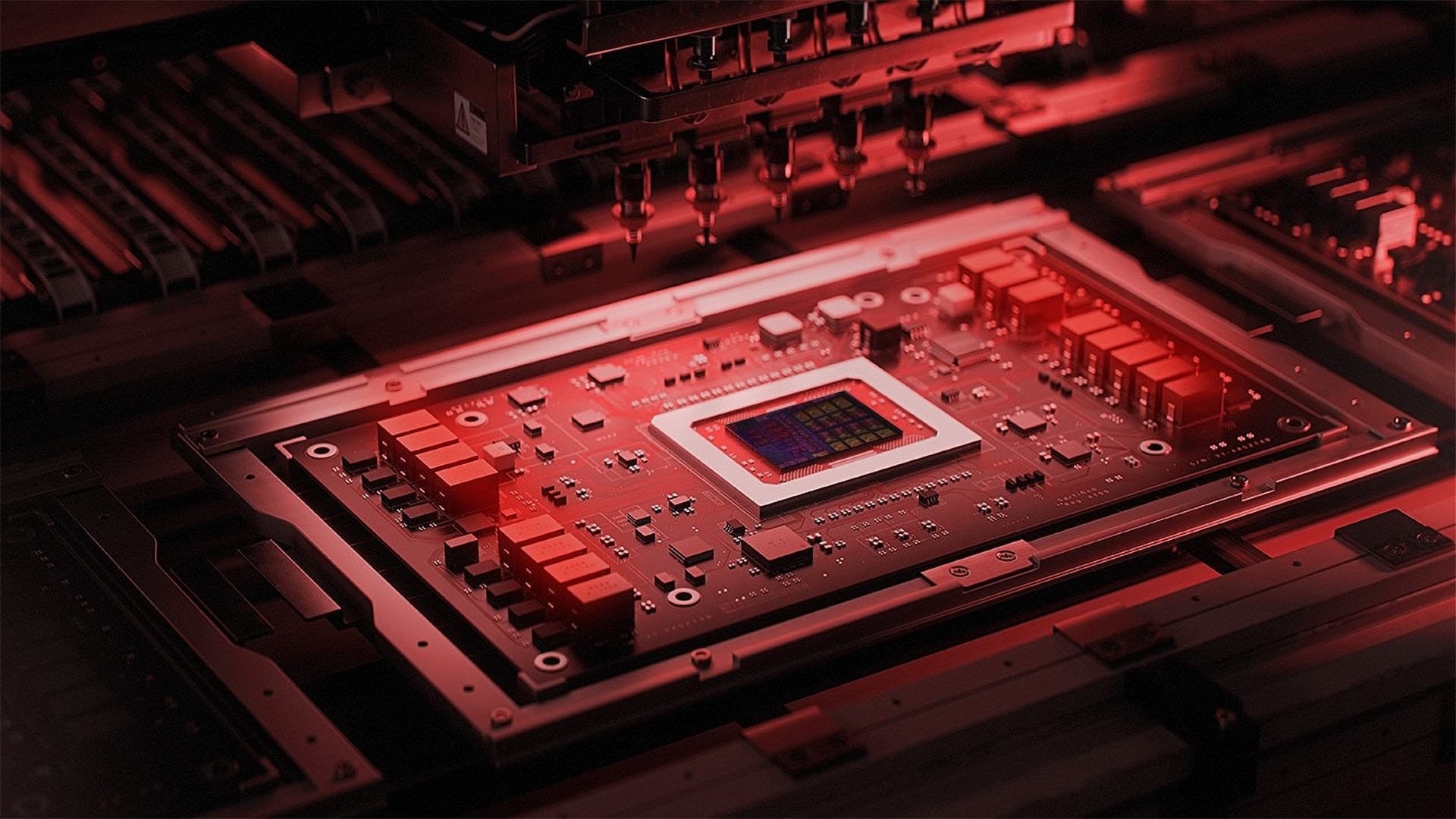AMD announces FSR Redstone premiere on December 10 — confirms technology will be limited to the RX 9000 series
Reports had suggested FSR Redstone is capable of running on Nvidia and Intel GPUs...

Almost a year after its announcement at Computex 2025 and days after its initial debut in Call of Duty: Black Ops 7, AMD SVP and GM Jack Huynh announced on X that the company will have its first major event for FSR Redstone on December 10th. Huynh also confirmed that Redstone will be strictly limited to the RX 9000 series.
FSR Redstone is the name for AMD's next generation of graphics technologies aimed at competing with DLSS 4. The Redstone branding encompasses several AMD technologies, including ML-based upscaling and frame generation, neural radiance caching, and ML-based ray regeneration.
AMD already has ML-based upscaling and frame generation available to RX 9000 series graphics cards through FSR 4. What's new are the latter two technologies, neural radiance caching and ray regeneration. These two technologies mimic Nvidia's Neural Radiance Fields and Ray Reconstruction. Neural radiance caching speeds up path-tracing by predicting indirect lighting assets and storing this information in a cache. Ray Regeneration regenerates pixels that could not be accurately traced in a ray-traced scene (such as scenes with ray-traced reflections).
At the premiere, we can expect AMD to share even more details on how FSR Redstone works, if it will replace FSR 4 entirely, and what games Redstone will be coming to (besides BO7). Reports have surfaced that FSR Redstone could potentially be a vendor-agnostic solution and is reportedly coded through a ROCm project that operates on the shader cores (making it possible to run Redstone on Nvidia and Intel GPUs).
However, the teaser trailer Jack Huynh showcased for Redstone makes it pretty clear that Redstone (at least initially) will be limited to the RX 9000 series just like FSR 4. The video only endorsed RX 9000 series support and lacked any details about vendor-agnostic support or support for older RX 7000 series GPUs. This is very similar to FSR 4, which officially only supports RDNA 4 GPUs, but it technically does support older GPUs.

Follow Tom's Hardware on Google News, or add us as a preferred source, to get our latest news, analysis, & reviews in your feeds.
Get Tom's Hardware's best news and in-depth reviews, straight to your inbox.

Aaron Klotz is a contributing writer for Tom’s Hardware, covering news related to computer hardware such as CPUs, and graphics cards.
-
heffeque Let's make things confusing!Reply
FSR 1.0, 2.0, 2.1, 2.2, 3.0, 3.1, 4.0... now FSR Redstone... afterwards it'll be FSR 2027... then FSR XTX... then FSR NextGen... then FSR 9.1 for some reason...
I hope I'm wrong. -
Amdlova Reply
Don't worry they will find a way to milk the consumer. The next thing will be called the Red wallet.heffeque said:Let's make things confusing!
FSR 1.0, 2.0, 2.1, 2.2, 3.0, 3.1, 4.0... now FSR Redstone... afterwards it'll be FSR 2027... then FSR XTX... then FSR NextGen... then FSR 9.1 for some reason...
I hope I'm wrong. -
ekio Reply
Agree,heffeque said:Let's make things confusing!
FSR 1.0, 2.0, 2.1, 2.2, 3.0, 3.1, 4.0... now FSR Redstone... afterwards it'll be FSR 2027... then FSR XTX... then FSR NextGen... then FSR 9.1 for some reason...
I hope I'm wrong.
It’s completely stupid!
What was wrong with calling it 5.0 ?
The desperation for attention from the morons of the marketing department is screwing up everything. (Hello USB morons and xbox team too) -
araghur12 Reply
One day you'll stumble upon a good doctor that will find the right medication for you. Until then, we'll have to enjoy these kind of pearls from the most delusional fanboy.Amdlova said:Don't worry they will find a way to milk the consumer. The next thing will be called the Red wallet. -
mitch074 Reply
Probable patents workarounds needed. Also at least they open source parts, if not most of it - meaning the day they drop it, support can continue.umeng2002_2 said:Embarrassing how low it's taken AMD to really compere with nVidia.
Contrast PhysX and SLI.